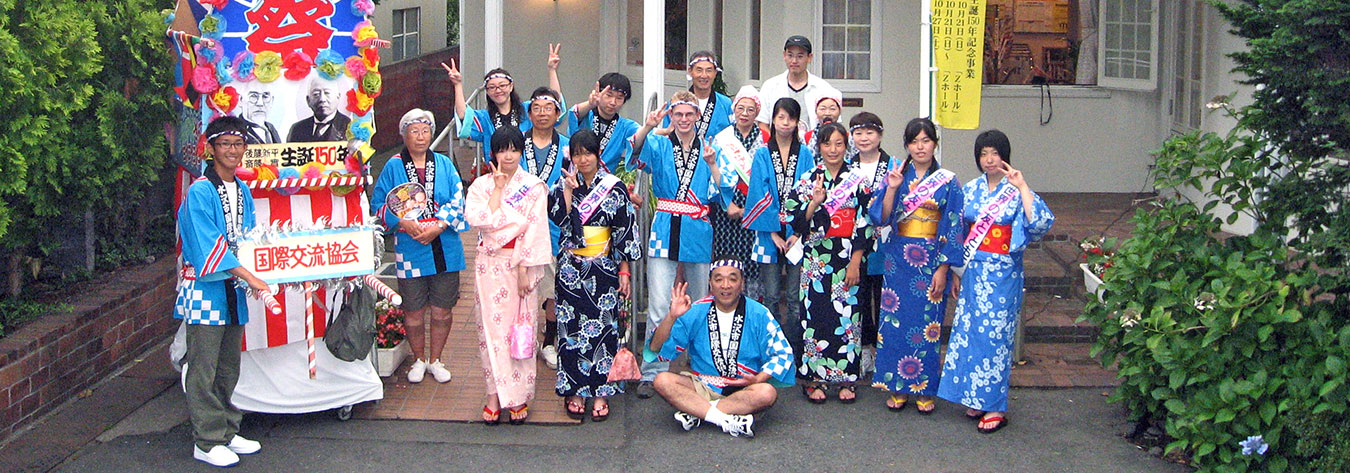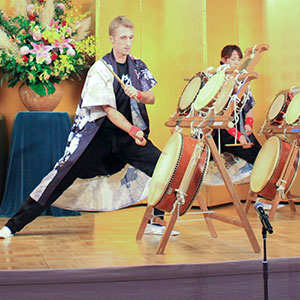Now in its 30th year, the Japan Exchange and Teaching (JET) Programme has welcomed more than 62,000 people from 65 countries to deliver grassroots international exchange between Japan and other nations. This column features former JET Programme participants who keep the idea of fostering mutual understanding firmly at heart.
I find it pleasantly surprising how many former Japan Exchange and Teaching (JET) Programme participants I meet in my daily life; two of my colleagues and one of my neighbours were on the programme.
When I was young, the thought of working in another country was a completely alien concept—who would want to do that? I often used the excuse that I would never work abroad as a reason not to study in French class: a regret I am reminded of when those around me use the language.
In hindsight, such an attitude grew from a narrow view of the world, and it was the JET Programme that was instrumental in widening it.
After reading European medieval and East Asian history at the University of Edinburgh, one of my tutors suggested I consider the JET Programme as an option after graduation. My interest in Japan had been growing for years, and my curiosity was starting to displace my long-held caution. When I got the acceptance letter from the programme, the “new me” was already yearning to go.
My placement as an assistant language teacher (ALT) in Mizusawa City, Iwate Prefecture, was not what I had imagined, since it is a rural area and perhaps more traditional than the country’s metropolitan centres. Yet, because I had lived in the countryside for a large chunk of my life, I was not as shocked by the setting as were others. It allowed me to become involved in the life of my new community in a way that programme participants in much larger cities could not.
As was the case for many on the programme, being an ALT was my first full-time job, and an incredible learning experience.
The three years I spent teaching enabled me to gain a great deal: from how to present complex information in a simple way—the essence of teaching—to cultivating good professional relationships with colleagues, despite language and cultural barriers.
The skills which I acquired became the foundation for many that I continue to develop.
After returning to Edinburgh in 2009, I began working in marketing and then moved into fundraising, which I currently do for the National Trust for Scotland, a conservation charity.
The voluntary sector relies on the support of people who understand why a cause is important, and my role largely involves conveying the value of the charity to the wider public. What better preparation for this than encouraging high school boys, at a rural agricultural school, that English is a valuable skill for their future?
On my return home, I was not the same person who had left in 2006. I met my amazing wife, made incredible global friendships, and achieved my goal of studying Japanese to right the wrong I had started in French class years earlier. In many ways, the programme has helped widen my view of the world and of my future in it.
Even though my job is not international in scale, I keep a global perspective by volunteering as chair of the JET Alumni Association Scotland, which I joined in 2011. It is a fantastic group of hard-working volunteers, who have become my firm friends. Together we have run photographic exhibitions, organised Japanese lessons and cultural events, and helped host a reception at the Scottish Parliament.
Being part of the alumni community is the final great benefit for participants, whether or not they join one of the many alumni associations in the UK. I feel privileged to be part of the global network of a programme that, at the prime age of 30, shows no sign of slowing down.







